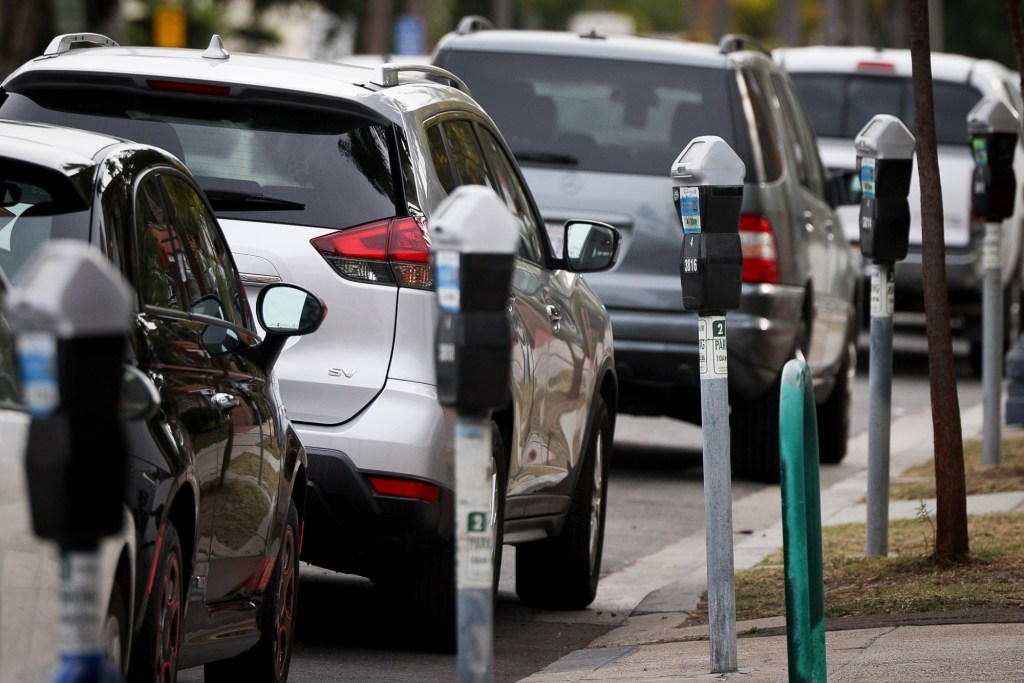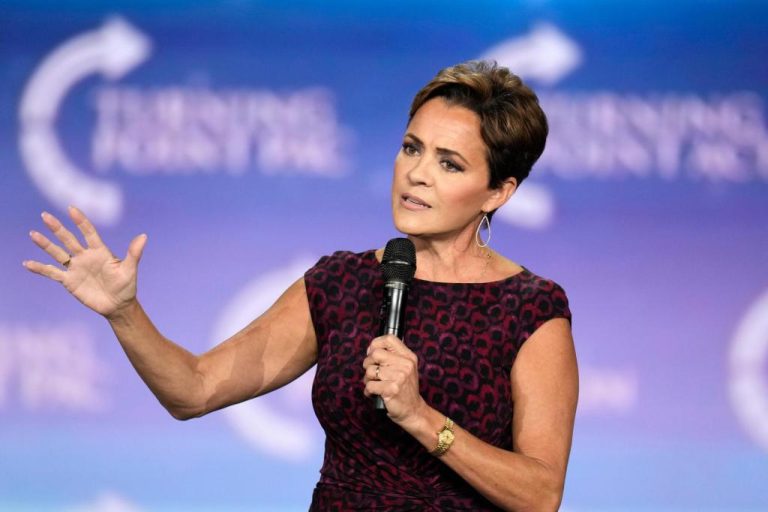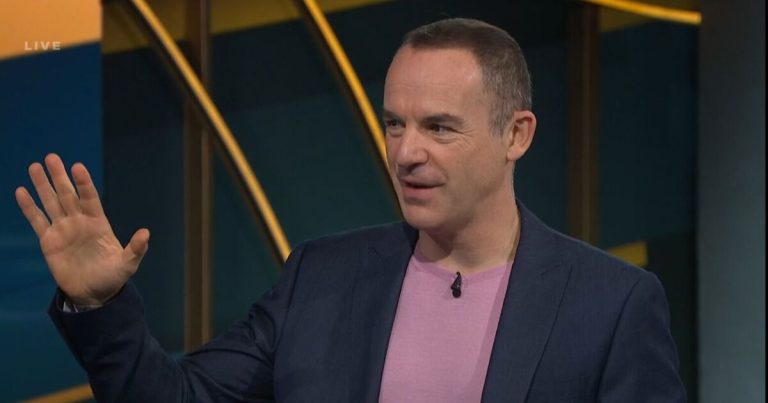
Gaping deficits have prompted San Diego officials to explore unusually deep 20% budget cuts — but critics want a wider effort, including higher parking fees and more scrutiny of an explosion in highly-paid city middle managers.
The debate comes after voters narrowly rejected last month a sales tax increase that would have generated about $400 million a year and erased annual projected deficits of roughly $300 million the city now faces.
Mayor Todd Gloria this week went beyond the hiring freeze he’s already proposed to ask most city departments to propose 20% cuts in their budgets.
The only departments that have been asked for smaller cuts are transportation, where the mayor wants 10% in proposed cuts, and police, fire and homeless services, where he has asked for 5% cuts.
Gloria is being widely praised for acting aggressively after the sales tax measure failed, but he’s also getting criticism from labor leaders, City Council members and the city’s independent budget analyst.
One line of criticism focuses on the dramatic increase in the number of highly paid program managers and program coordinators, from 70 in 2015 to 393 today. That alone has increased the city’s $2.2 billion annual budget by $80 million.
City labor leader Mike Zucchet considers these middle-management positions, which typically have annual salaries above $200,000, a ripe place to consider cutting before the city makes any other drastic moves.
“We’ve got some very lucrative, low-hanging fruit to begin with cutting,” said Zucchet, general manager of the city’s white-collar union, the Municipal Employees Association.
City Council members said Wednesday that exploration of budget cuts should include these middle-management positions, which are non-union but benefit from union-negotiated raises, and that officials should determine why there has been such a sharp increase in the number of these jobs.
“I think there’s an opportunity to take a harder look at this,” Council President Joe LaCava said during a meeting of the council’s budget committee.
Councilmember Henry Foster III said he’d like Zucchet’s statistics about the middle-management jobs sent to the independent budget analyst for further scrutiny.
“It needs to be detailed in nature so we can make some informed decisions,” he said.
Vivian Moreno said she’s particularly frustrated the number of those jobs has kept growing, even accelerated.
Zucchet said the number of program managers and program coordinators doubled from 70 to 140 between 2015 and 2018, then doubled again to 280 by summer 2022.
Since then, the mayor has hired or promoted people into another 113 of these middle-management jobs, which has increased the city’s budget $30 million, Zucchet said.
Moreno said hiring middle managers in this way was somewhat understandable when San Diego had significantly lower salaries than most other cities and was the only city in the county that didn’t give new employees pensions.
But now that pensions have been restored and employees have received large raises, Moreno said there is no longer a need to designate key jobs as highly paid program manager and coordinator positions to fill them.
Zucchet and council members also said the mayor should be more aggressive about boosting parking revenue, which could help the city avoid cuts to cherished amenities like libraries, pools and recreation centers.
Zucchet said the city could double parking meter fees as soon as next month.

“Rather than charging $1.25 an hour for parking and being under market by many dollars, you can charge $2.50 and still be under market to private lots and generate millions more,” he said. “This is something that can literally be done immediately.”
He also suggested San Diego start charging for parking at city beaches. While that would take many months because it requires Coastal Commission approval, Zucchet said the city should start the process now.
The independent budget analyst, Charles Modica, endorsed these suggestions. He noted the IBA conducted an analysis two years ago that said the city could generate more than $10 million annually with new parking fees.
Zucchet said the city should also charge single-family homes the full cost of trash and recycling services when it begins charging for those services next summer.
“I know there’s been a lot of very thoughtful discussion about how to implement that and to phase it — but the reality is we need full cost recovery, and we need it as soon as possible,” he said.
Modica also agreed with that suggestion, which would generate about $80 million a year.
The mayor has also been criticized for proposing $62 million in new spending in the new fiscal year that begins July 1, primarily because that new spending would require even deeper cuts than already needed.
The new expenses include $6 million to clear clogged flood control channels and $56 million for homeless services, including 1,000 new shelter beds the mayor has long sought.
“We can’t say we’re going to tighten our belt with one hand and then just let the belt loose with the other hand,” said Moreno, noting that the council hasn’t approved the mega-shelter the mayor has proposed near the airport.
The mayor is being praised for a comprehensive analysis of city contracts, which make up $258 million of the annual city budget — more than 10%.
LaCava said the city should consider canceling many contracts where city employees could perform the work in-house.
“If we’re going to be spending the money, let’s give it to our employees,” he said.
Zucchet was more aggressive about city contracts.
“Those should be immediately frozen and cut, especially those that don’t deal with the safety and security of employees or the public,” he said.
Matt Vespi, the city’s chief financial officer, said the process will be more complex.
The city asked each department in November to prepare an inventory of all services they provide, along with the costs and the number of employees.
The city also asked that all contracts be reviewed from a “zero” perspective — meaning it would be assumed the contract could be completely eliminated unless adequate justification could be provided.
And now they’ve asked each department to propose deep cuts.
Vespi said those three things will be analyzed together to determine which contracts and programs can be cut or reduced, and which must be fully preserved.
“We have a new level of detail that we haven’t had historically,” he said.
Councilmember Kent Lee, chair of the budget committee, endorsed such a detailed approach while simultaneously criticizing the idea of 20% cuts across the board.
“The degree of what’s being called for is unprecedented,” he said. “It certainly sets a tone that concerns me. We have to be much more strategic. Looking at how we impact our communities requires a scalpel.”
Zucchet agreed, contending that major mistakes were made the last time San Diego faced deep budget cuts in 2009 and 2010.
Back then, the city laid off only civilian employees — dispatchers and investigative aides — to avoid laying off sworn officers.
The result was that much higher-paid police officers were pulled off patrols to perform the duties that lower-paid civilians had done.
Zucchet said a similar mistake was made among firefighters. The city canceled a fire academy to save money but ended up spending much more than those savings when a lack of new firefighters forced existing firefighters to work more overtime.
“I’m assuming that stuff will be thought out much better than it was the last time around,” Zucchet said.






